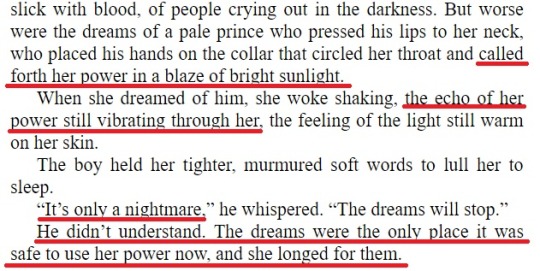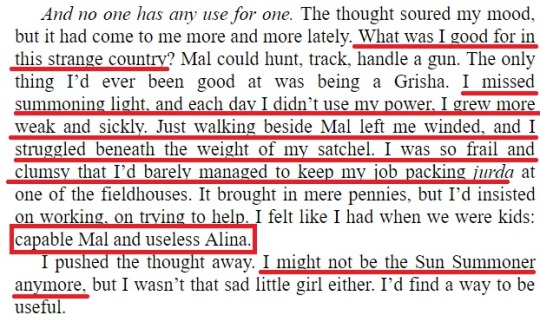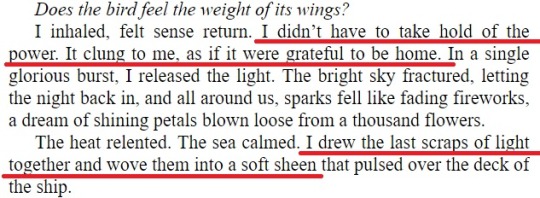#6-in-1 chapter book
Explore tagged Tumblr posts
Note
A guy who just wake up from a coma -> what did i miss?
Pomefiore was the last plot i follow before real life made me forget about our silly boys. How bad has the plot become now for our gang? Also who is that Gojo looking guy?
anon, I am so sorry and I mean this in the best way, but I do think episode 5 is the absolute funniest place to have stopped following Twst because shit starts escalating SO fast after that. episode 6 literally starts with a secret government shadow agency breaking down our doors and kidnapping students. zero to a million instantly.


and like...that's not even the zaniest thing so far? Ortho's hacked into the collective human unconscious. there's time travel (sort of). "Crowley might be Malleus' long-lost father" is a serious theory. if you'd told me any of this back pre-episode 6, I would have asked for the link to this unbelievable but highly intriguing fanfic.
also, episode 7 gave us (and then immediately took away 😔) the best character in the whole story:

#art#twisted wonderland#twisted wonderland spoilers#twisted wonderland episode 7 spoilers#twisted wonderland book 7 spoilers#there are better and very comprehensive summaries out there so i'm not gonna get into it with any seriousness#(genuinely a LOT has happened)#but let's recap very quickly#episodes 1-5: our friends' RA is a huge asshole! jack's sports idol is trying to cheat at the big game! who will win the talent show!#i sure hope no one turns into a monster and tries to kill us!#episode 6: a shadowy government organization has stolen our friends (and cat) to experiment on#idia throws himself into hell and then tries to destroy the world. we punch ortho so hard he grows a soul.#episode 7: malleus has an existential crisis and traps everyone in an eternal dreamworld#extended diasomnia backstory flashbacks reveal that silver is a cursed prince and lilia wanted to be the filling in a royal sandwich#somehow sebek is the most normal character and that's the real twist right there#every new chapter is its own wild fever dream and i'm so here for it#as for this gojo fellow#i had to google him because i am unfamiliar. but i believe you are referring to our dear friend scully (skully?) j graves#from that time we got sucked into a magic book (again) and then he got mad at us for being fake halloween fans#also he wouldn't stop kissing our hand. who says there's no smooches in twst.
2K notes
·
View notes
Text
Strangus Derangus (Book #1), In the Bear's Den (Book #2) & Adventures of Little Shambu by Reena Ittyerah Puri, Savio Mascarenhas (Illustrator)

View On WordPress
#6-in-1 chapter book#Adventures of Indian boy#Adventures of Little Shambu#Book Blog#book blog feature#Book blogger#Book review#book review blog#Books Teacup and Reviews#Children Fiction#Children&039;s book#Eclectic Book Blog#illustrated#In the Bear&039;s Den#Indian Author#Indian Book Blogger#Indian Fiction#Puffin Books#reviewer#Strangus Derangus#Tinkle comics
0 notes
Note
OKAY HELLO UH. SAVANACLAW DREAM UPDATE SPOILERS ?!?!!2!!2!2
THE. WAY BOTH JACK AND RUGGIE ADMIRE LEONA SO MYCH AND FEATURE HIM IN THEIR DREAMS 😭😭😭😭 Jack making Leona basically nOT HAVE DEPRESSION QUFBWKANDK 😭😭 and making him a fair player... Jack my boy... your dream is lovely but you made him do stuff hED NEVER DO 😭😭
AND RUGGIE. THE FACT HE AND LEONA NEVER MET IN THIS DREAM *BUT* THE AMAZING DRESM SCHOOL HE ATTENDS WAS SKGNKENAKjfkenalNIfjeksksn MADE/PROPOSED TO BE MADE (?) BY LEONA 😭😭😭 AND HE SAYS THAT PRINCE LEONA IS MORE POPULAR THAN FALENA AMONGST TYE YOUTH AJFNWKNudnekskalakdknsk tHEY WANT ME DEAD. D E A D.
and then ... ruggie says smth about him choosing the king he'll follow and LATER WHEN REFERRING TO LEONA HE SAYS SMTH TO JACK LIKE. "LET'S GO WAKE UP OUR KING" I'm fuckifnwjzbslakznaklNdkdkals akehueuqjakansksk THEY ADORE HIM SO MUCH. I CAN'T DO THIS.
So this means we'll get a full chapter ONLY for Leona's dream... I don't think we'll see him crying like Jack and Ruggie but GOD IF WE DO SEE THAT I'LL BE FOUND DEAD- i just knowwww that whichever way they go w it (the "he already knows it's a dream theory" or SMTH else), there WILL BE drama and I *WILL* die internally... my Leona plushies will pay the price (they will be hugged very tightly)

[Referencing the book 7 part 11 update!]



Me, coping: Oh, the book 7 Savanaclaw update is split into two parts? That means the first part must be dedicated to Jack and Ruggie and the second part must be Leona only. Surely this means I am free from being sniped in the Jack and Ruggie segment. Me, from the future:

. . .
ME EXPERIENCING THE FIVE STAGES OF GRIEF ALL AT ONCE

WHAT THE FUCK WAS THAT 💀💀💀 I was kind of expecting some element of respecting their dorm leader to come up (definitely for Jack's), BUT NOT THIS EXTENT OTL
Of the two, Jack's dream was the more obvious one to feature Leona in a very positive light. His admiration for the guy was clear ever since book 2, in which Jack--someone who regularly sucks at expressing his feelings--confessed MULTIPLE TIMES that it was Leona's passionate magift play on TV that inspired Jack to follow in his footsteps. And that's why he was so disappointed to learn that the guy he admired all along was a scumbag that would play dirty to get ahead. The Leona in Jack's dream might be that version that Jack had in his head... The Leona he yearns for the attention and praise of, the Leona he thought was a virtuous leader who values hard work and good sportsmanship, the kind of person who gives speeches to inspire his team and helps people up by the hand when they fall. Another reading could be that this is the Leona Jack believes is still possible if he works toward it, because this dream seems to be set a YEAR after their loss to Diasomnia. And this is Leona at his best and most dangerous because he's throwing literally everything he has into this training, so he'll probably do the same in combat; Yuu and co. have to develop a whole strategy in advance to isolate Jack because they KNOW they're going to get blasted by dream!Leona if they give any inkling of trying to wake the dreamer up. JACK LITERALLY DREAMED ABOUT LEONA THRIVING, BEING HIS BEST SELF... Jack, the self-proclaimed LONE WOLF, who claims he doesn't like GROUP ACTIVITIES/SPORTS, longs to be part of the pack that LEONA leads... But he won't follow just anyone, Jack has standards AND LEONA APPARENTLY MEETS ALL OF THEM (or, in Jack's eyes, Leona can meet those standards).
THEN WHEN JACK WAKES UP... Hoo, boy... The way he was smiling but then broke down into shouts and sobs... That's literally got to be my favorite kind of emotional distress (part of why I loved Idia's breakdown when he was introducing his newly built little brother to the Styx researchers). You can hear how betrayed he feels in his voice, all the raw emotion that didn't come through as strongly in book 2. ASKHLBLBIASDIVDAI SORRY TO DUNK ON BOOK 2 AGAIN BUT IT'S TRUE. Jack's feelings of betrayal... They were so blunted there, it felt like he was reacting to a minor setback (he seems to easily shrug off being called a traitor by the guy he supposedly admires) rather than genuinely being hurt. I'm glad that the emotional weight that wasn't addressed then is finally getting the spotlight it deserves now.
Then Ruggie's dream???? 😭 That one caught me SO off-guard. The way it opens with Yuu and co. suspecting it's Leona's dream because they arrived in Sunrise City, one of the few industrialized places in Sunset Savanna... The lore review of how it's difficult to get the people to get behind developing the land due to how it would negatively impact the nature they want to live in harmony with (plus the brand-new reveal that these disagreements can become VIOLENT)... and Idia realizing that this, THIS is why Leona actually decided to take an internship at an energy and mining lab back home--because Leona realized he cannot change the country on his own, no matter how often he butts heads with his brother. He needs even more knowledge and a team to work with him. An NPC donut vendor lady randomly drops it on us that it's thanks the PRINCE LEONA that Ivorycliff Academy was able to be established. Not only that, but turns out Leona has graduated already and has spent his time after NRC building schools and establishing magift teams for Sunset Savanna (the latter being something Leona expressed interest in, as having a national sport and/or famous sporting teams can enhance his country's soft power). AND HE'S MORE POPULAR AMONG THE YOUTH THAN FALENA IS???????? MR. LEONA I-HATE-DEALING-WITH-KIDS KINGSCHOLAR IS POPULAR WITH... THE KIDS????? ? ?? ?? ?? ? ?? ?????? ?? ? 💀 The guy who claims to only help the underclassmen because they'd otherwise be an inconvenience to him... is admired by the same underclassmen... and now that has translated over to Ruggie's dream as the youth of Sunset Savanna loving him... OTL YOU'RE KIDDING ME RIGHT/????? ? ??? ? ??v????? ? ? ????
The most bewildering detail to me about Ruggie's dream is that he and Leona haven't met at all; Ruggie acts pretty clueless when asked about it and Leona graduated from a completely different school than him (NRC). There's no way they could have met, yet the dream still deemed that Leona was an important enough aspect of Ruggie's life that he was incorporated into it... and, unlike in real life, Leona now has the influence to make these systematic changes not just for bettering Ruggie's life, but the lives of everyone in Sunset Savanna...
UUUURURUGUUGHHGHHHHHHHGHGHHHHHHH H H HH H H HHHHHHH H H H HH H H AND THEN WWHEN RUGGIE FINALLY WAKES UP AND AND ANADNANDANDANASHADSNADSNADSNAN NDDDSDD SD SM ADSB,M ADSDBSM DDD HE CALLS HE WON'T FOLLOW A "FAKE KING", HE WANTS TO CHOSOE THE KING HE FOLLOWS 😭😭😭 RUGGIE TELLS JACK THEY SHOULD GO AND WAKE UP "OUR KING"... Ruggie, who constantly complains about how easy rich people have it and how hard Leona makes him work for his coin, is standing right here and HE'S CHOOSING LEONA.
This is all so crazy to think about because back in book 6 (citing the moment that broke me Yet Again, lmao) Leona implied that while he has hope in others (like Jamil), HE DOESN'T HAVE THE SAME HOPE FOR HIMSELF. But there's literally his whole dorm who trust him to lead them and their futures as professional athletes 😭 Jack who believes Leona is capable of being that shining, ideal senpai he dreamed of... Ruggie who believes Leona can and will change not only his life for the better, but also the lives of marginalized beastmen like hyenas, the younger generation, and heck, why not their whole country too... OTL
THIS IS LITERALLY THE WORST POSSIBLE OUTDCOME FOR ME... . . . . ....... . .. . . . .. . / / / / / . . . .. . .. ... . . . ... . . YOU JAVE JACK'S DREAM SUPPLYING THE RELIABLE BIG BRO/ONII-SAN LEONA... THEN RUGIGE'S DREAM SUPPYL inG THE SMAR TDETERMINED PRINCE LEONA ... AND THEN NEXT UPDAT.E.XBBCXL V.CV . . . . . . . . ...... .. .. . . . . OTL ASCTUAL LEOPJNA DFGFAYVAFIVAVIYAIAGIGEIYGEPEIQAGfhgpaebpyrwqeg,hpgqeugqm[gqepg./l.,pjm9hmh4 gephmhurwhbaudavmudfsgnyofegnyoifui
GOD IF EW SEE THAT BITCH CRYi NG gkj eabihlaegbiaegibyegoqetpr13569 87q3tbkhl3o tyb6fOfonfOTFsugfaiugfanyoigFGION qit' S LEOVER FOR MEAMBFFVHAJVFFVEUGFO EOFAENYFEOFHdhmFSLJGADFsmf aLALLL OF HIS PENT IUP FRUSTRATIONS JUST SPILLING OIUT;V .F,DSBFAHLFLFFNODGOVSMHFAV UEGOFEAHMAEGDGSKPFSHIM THE RAGE AT MALLEUS DFN BAFVKJAFYGLAFGIDGIDGIODGSOIDN FOR FOTRICNG THIS LIE UPON HIMFDS NFASVAEFBLADFIOBY AGIOQEGONYFWmpdphGAMGobf IT'D BE SO SEXSYFDH HOT IF HE KNEW IT WAS A DREAM ALL ALONG PELEEEEEASE 🙏 I'M ONT MY HANDS NAD NDD KNEEESLSD DFS,SFHBAFLHAFDLI EO FQEYG VADGNOVSHUPVPUFFmhagyo 4wpeq/pll.,wjph9q80th9umpdbsaihoadnFSuov fsogyFSGUOFSu SNOGYAVUO FSA
.
.
. Ah-HEM!! 😇 Sorry, I don't know what overcame me... I just blacked out and when I came to I don't remember what I was doing or saying for the past several minutes 💖 Now if you'll excuse me, I am filled with an intense desire to enact violence on the nearest lion-shaped object I can get my hands on--

#twst#disney twisted wonderland#disney twst#twisted wonderland#Leona Kingscholar#Jack Howl#Ruggie Bucchi#Savanaclaw#notes from the writing raven#NOT L*ONA ROT#book 7 chapter 11 part 1 spoilers#jp spoilers#Idia Shroud#book 7 spoilers#book 6 spoilers#book 2 spoilers
232 notes
·
View notes
Text




Everyone say happy birthday to peepaw jigsaw Tobin Bell!
#saw#saw fandom#saw franchise#saw movies#sawposting#saw 2004#saw films#sawtism#jigsaw#saw memes#sawtistic#tobin bell#happy birthday#birthday#horror#horror legends#horror lover#saw 1#saw 2#saw 3#saw 4#saw 5#saw 6#saw 7#saw 3d#saw the final chapter#saw 8#spiral from the book of saw#saw x#saw 10
370 notes
·
View notes
Text

So from what I’m getting so far this is Gideon and Harrow dynamic. Except it’s typically them both gripping each other.
#I’m only on chapter 6 book 1 no spoilers please#it’s crunchy on purpose#opossum draws#gideon nav#gideon the ninth#harrowhark nonagesimus#harrow nonagesimus
172 notes
·
View notes
Text
Thinking about how the extent of Tedros and Agatha’s relationship problems is them rehashing the same insecurities for 6 books and could have easily been resolved if Sophie had LET THEM BREATHE FOR TWO CONSECUTIVE MINUTES
#i love them#but come ON#the version of sge without Sophie is like 3 chapters long#the fall I love in the first book and for some GODFORSAKEN REASON they can’t be happy until book 6????#ask me about the alternate ending to sge 1 I wrote in 11 grade#tedros of camelot#tedros/agatha#sge agatha#agatha of gavaldon#sge Sophie#tagatha#the school for good and evil#sge#sge tedros#sophie of gavaldon
158 notes
·
View notes
Text
I tell you if this book wasn't from the 50s, when sam rescued frodo from the tower, half dead - this would've been their first kiss! we were almost there, but not quite...
#sam reading#the return of the king#book 6#chapter 1#the lord of the rings#frodo baggins#sam gamgee#frodo x sam#fantasy
17 notes
·
View notes
Text

when your older lesbian mentor figure has maxed out skill levels in "asking for a friend"
#the moon on a rainy night#amayo no tsuki#volume 6#translation mine#spoiler discussion:#i was disappointed in this volume for kinda abandoning that plotline after this#given how the last volume ended i thought they'd resolve it and we'd get mb 1-2 more books to conclude the series#but on top of that it introduced a whole new character in the last chapter so i guess kuzushiro's setting up for the long haul#which i have mixed feelings about. like aniyome (same author) works as a long haul because grief takes that long#whereas this is fluffier and the longer it goes the more the disability theme gets diluted#ill still read volume 7 exactly on release day just like i did for volume 6 tho lmao
29 notes
·
View notes
Text

Yeah this is about right (as always my thoughts are in the tags so there's actually kei content there lmao)
#Hester I adore you they could never make me hate you. Seriously the first chapter in 6 (bad candy) is like my favourite opener#Kei they could NEVER EVER make me hate you. did nothing wrong ever. rhian when I CATCH you#its so funny how my two favourite characters just like. hate each other. like japeth literally kills him#sad cause they're so SIMILAR. theyre both victims of Dog Metaphor its so sad that kei does Not like japeth in the slightest#personally if they had a good long discussion about their emotions at like 3am they could've probably stopped TCY from happening#but alas. Aric. somehow its all his fault again. why do I have an aricposting tag but not a keiposting one.#Hester easily has the best overall characterisation arc I love love love the way soman writes her#I remember when I read 6 for the first time#before japeth insanity happened#I used to anticipate her chapters over like everyone else's. Hester the 1 lesbian in the series you are deeply loved#I could write whole essays about japeth and kei's characterisation it is so sad that soman forgets kei exists#like he's meant to be rhian's eagle. that's his job. that's what he's spent a Long Time anticipating becoming#but rhian refuses to acknowledge it. instead he calls Japeth his eagle in book 4's ending#He eventually falls in love with Sophie#he only ever cares about the crown#how he GETS to the crown#and bringing his mother back. he lies more than japeth#and never once does he get to be the eagle. There's only three spaces - lion/eagle/snake - and he doesn't get to be any of them#dont even get me started on how he dies. surrounded by white swans. being purely good#god rhian II try not to fuck EVERYTHING over challenge. and also Aric. its all arics fault as well#keiposting#japethposting#actually not really jposting. didn't do it that much#sge#tsfgae#school for good and evil#the school for good and evil#sfgae#the school of good and evil#as much as I adore Hester I dont think I will talk about her much in detail ever so no hesterposting yet
13 notes
·
View notes
Text
sunday six ✌
tagging @four-white-trees @passthroughtime @overdevelopedglasses @skysquid22
decided to get back to my itokura-kitakata fic again! here's the two of them arguing about whether romance belongs in mystery fiction, lmao
“There’s no objective way of reading a text, and no objective way of interpreting one either. ‘Objectivity’ is just an idea made up by boring people who think mystery fiction should be logic puzzles and nothing else. If that’s what you want from mystery, just do a crossword or something. Intellectual stimulation, with no frills. That’s what you want, right?”
“Ugh, you’re just impossible.” Itokura threw her hands up in the air. “You don’t get it.”
He leaned closer, focused. “What don’t I get? It sounds like you’re the one who doesn’t understand.”
“You don’t understand the beauty of an elegant trick. All this extra stuff just obscures it. It’s cheap.” She raised an eyebrow. “And what are you saying I don’t get? Love? And you’re saying that you do?”
Kitakata floundered at that. He forced himself not to glance over to where Yagami was at the computer, talking to Amasawa, lest he make everything obvious to Itokura. Besides, he wouldn’t know what he’d do if he found Yagami looking right back at him, listening to their conversation.
“That’s not what I was saying.”
“Then are you going to explain what you meant, or are you going to keep beating around the bush?”
#sunday six#feels good to get back to this one after taking a break!#this is like. the single kuwagami moment in this fic (most of the fic takes place before yagami is even around)#but i've been itching to write out this idea for ageeeeees and it feels good that i finally have#not just them arguing. but kitakata being embarrassed about being called a romantic when yagami is like. right there. lol#this is gonna be a multi chapter fic though i wasnt planning on it#but the pacing and relationship needed breathing room. and i'm happy so far#have been thinking of chapter names for the stuff that's done! and that's also fun!#the name for chapter 1 rn is “cool teacher” which is. what kitakata wants to be. lol#how lame of him...#i should keep that chapter name cause it makes me laugh#it's looking like 6 chapters right now#6 chapters of itokura cockblocking kitakata from a book from the library. beautiful#something intensely hilarious to me about writing a multichapter fic where kitakata tries to get itokura to come back to school. and fails#then yagami does it in One Afternoon 😭
11 notes
·
View notes
Note
Hiya
Have you read the Game of Thrones books? If so, do you recommend them?
short answer: yes ive read them and do absolutely recommend the books🤭
long answer: the books r amazing the world building and characterization is top tier and its my favorite fantasy world there is (my hot take is that i like it better than lotr) HOWEVER if u plan to read them id recommend looking up if they have any content that might trigger u bc while i feel like grrm handles the topics like rape and pedophilia well, its still rather graphic (the characters are also unreliable narrators so yk). if u like to dive deep into the politics and history of fantasy worlds then there is also 'fire and blood' and 'the world of ice and fire' which explore the backstory even further🤲 however aside from the main saga my favorite stories are of 'the hedge knight' which is significantly lighter but good to read in the ever lasting wait for the last two novels. if u liked the show ull probly like the books too🤭 i liked the books more buts its a preference thing. the prologue of a Game of Thrones is some of the best pieces of writing there is. so are the jaime pov chapters in a Storm of Swords and sansa chapters in book 2 and 3
#anon#anonymous#asks#he prologue of agot is genuinely a masterpiece in creative writing#grrm has some of my favorite prose ive read in a long long time#asoiaf#grrm#valyrianscrolls#im currently on affc so out of the 5(6 if ur me bc dance is slit into two books) main novels ive read 3 and thoroughly enjoyed all of them#hated dany chapters tho thats just personal taste#if u do read the books ur in for a long ride tho :')#u might get confused w character names at first so u might wanna keep like. a list of them but thats not necessary tbh.#i just raw dogged my way through book 1 read the wiki a little and have been flying off of my memories ever since#a song of ice and fire#chaos reads
10 notes
·
View notes
Text
Alina’s relationship with her powers, pt. 2
Before

Chapter 1


Alina’s health’s going to hell.

Sun Summoner isn’t a job! You never stop being Grisha! *glares at LB*
Even mentally, Alina’s not in the best place.

I don’t know, but the fact the Darkling looks better using merzost, than Alins not summoning...
He wore his weariness like an elegant cloak, but it was still there. Faint smudges showed beneath his eyes, and the hollows of his sharp cheekbones cut a little deeper.
Chapter 5

The fact Alina goes several times from not summoning at all to doing so in tense situations can’t be exactly healthy. How likely is that the adrenaline rush alongside her body’s natural reaction to summoning gets addictive to her?
Chapter 6

This also doesn’t sound well. I know Alina’s skills are incredibly limited, but creating possitive associations with “slicing someone in half" might not be the best idea ever. Especially is she’s worried she’d becoming “corrupted”.

Claiming of the Sea Whip.
I’m gonna repeat myself, but how could this go IF Alina were well-trained Grisha?
- I don't know where it came from.
~ It came from everywhere. Because you called upon it to come.
Alina × General Kirigan; Shadow and Bone 01×03: The Making at the Heart of the World

pt. 1
#Grishaverse#Siege and Storm#S&S Before#S&S Chapter 1#S&S Chapter 5#S&S Chapter 6#Alina Starkov#Alina × her powers#The Darkling#Malyen Oretsev#Sea Whip#01×03: The Making at the Heart of the World#grishanalyticritical#V#Shadow and Bone#Grisha trilogy#books#quotes#Leigh Bardugo
41 notes
·
View notes
Text

I.... I DID IT?????
I ESCAPED FROM BOOK 6 CH 66-67 HELL!!!!!
I CAN FINALLY SLEEP OMG IM NEVER REVISITING THOSE CHAPTERS AGAIN
#U DO NOT UNDERSTAND HOW LONG THIS SHIT TOOK ME.......#It took months to beat (raising the spells + levels on many cards)#i spent all day grinding in alchemy#got the last team to spell level 5 (w/ two at lvl 7)#IM FUCKING DONE BRO 😭😭😭😭😭#now i wait for the 1 hour charge thing omg gOODBYE CHAPTERS 66-67.... NEVER AGAIN#twst#twisted wonderland#twst book 6#vinyl#fursona#my oc#orignal character#loafbud#digital art#loafbud art#screenshot
53 notes
·
View notes
Note
Holy fuck I read sword of kaigen a few months ago and it's the only book that has ever made me cry god I love it so much
i cried practically the entire second half of the book and even though the last chapter wasn’t necessarily Sad i was like. crying like a little baby it was seriously the best thing i have ever read EVER!!!!
#my kindle told me it would take 1 hour and 6 minutes to read the last chapter and it didnt even stop me#the Old me wouldve put it down and never picked it back up#but this book has changed me i am a new soul now#nova.ask
2 notes
·
View notes
Text

WHO WANTS A HIT?!?!?!?
(Heard it tastes like Adams rotten bones)🦴
#saw#saw fandom#saw franchise#saw movies#sawposting#saw 2004#saw films#sawtism#jigsaw#saw memes#vape#vapecommunity#sawtistic#saw trap#sawmeme#saw 1#saw 2#saw 3#saw 4#saw 5#saw 6#saw 7#saw the final chapter#saw 3d#saw 8#jigsaw 2017#spiral from the book of saw#saw x#saw 10#saw posting
213 notes
·
View notes
Text
I would like to thank Delightfully
EAGER BINGE READER

@furislupus for READING and LIKING
DR. MORDENHEIM’S TRAVELS, BOOK 1:
De Writer’s Equestria,
Chapter 4, Chapter 5, Chapter 6,
Chapter 8
Return to Hosted Tales
MLP Fan Fiction
#@furislupus#DR. MORDENHEIM’S TRAVELS#BOOK 1:#De Writer’s Equestria#Chapter 4#Chapter 5#Chapter 6#Chapter 8#Hosted Tales#MLP Fan Fiction#Written by @mordenheim
4 notes
·
View notes